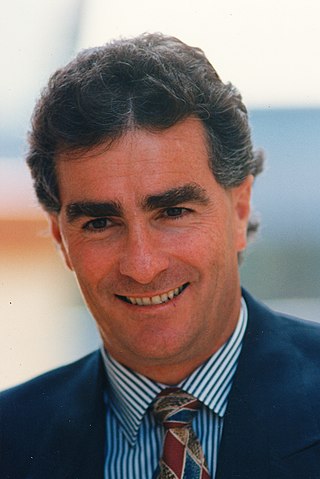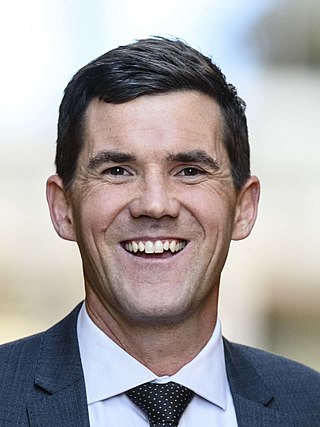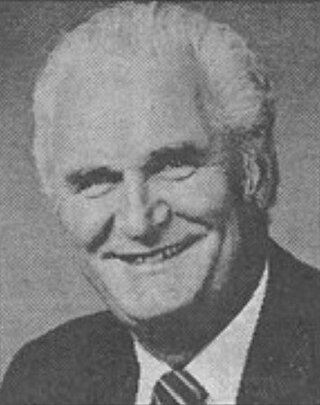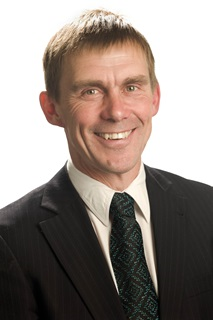
Dame Kerry Leigh Prendergast is a New Zealand politician who served as the 33rd Mayor of Wellington between 2001 and 2010, succeeding Mark Blumsky. She was the second woman to hold the position, after Fran Wilde.

Mark Herbert Blumsky is a former New Zealand politician and diplomat. He was Mayor of Wellington from 1995 to 2001, and a Member of Parliament for the National Party from 2005 to 2008. Blumsky was New Zealand's High Commissioner to Niue from 2010 to 2014.

The 2010 New Zealand local elections were triennial elections to select local government officials and district health board members. All elections are conducted by postal ballot, with election day being Saturday 9 October 2010.
The 2010 Wellington City mayoral election is part of the 2010 New Zealand local elections. On 9 October 2010, elections were held for the Mayor of Wellington plus other local government roles. Sitting Green Party councillor Celia Wade-Brown defeated incumbent mayor Kerry Prendergast and four other candidates.

The 2007 Wellington City mayoral election was part of the 2007 New Zealand local elections. On 13 October 2007, elections were held for the Mayor of Wellington plus other local government roles. Kerry Prendergast was elected for a third consecutive term as mayor of Wellington.
The 2004 Wellington City mayoral election was part of the 2004 New Zealand local elections. On 9 October 2004, elections were held for the Mayor of Wellington plus other local government roles. Kerry Prendergast was re-elected for a second term as mayor of Wellington. This was the first Wellington mayoral election to be held under the Instant runoff voting system.

The 2016 Wellington City mayoral election was part of the New Zealand local elections and was held on 8 October to determine the next Mayor of Wellington. The incumbent was Celia Wade-Brown, who was first elected in the 2010 mayoral election. Wade-Brown did not seek re-election. Her title was pursued by her deputy, Justin Lester, councillors Jo Coughlan, Andy Foster, Helene Ritchie and Nicola Young, former mayor of Porirua City Nick Leggett and independent candidates Keith Johnson and Johnny Overton.
The 1915 Wellington City mayoral election was part of the New Zealand local elections held that same year. In 1915, elections were held for the Mayor of Wellington plus other local government positions including fifteen city councillors. John Luke, the incumbent Mayor, retained office tallying just ten votes fewer than he did two years earlier. The standard first-past-the-post electoral method was used to conduct polling.

The 1933 Wellington City mayoral election was part of the New Zealand local elections held that same year. In 1933, elections were held for the Mayor of Wellington plus other local government positions including the fifteen city councillors, also elected biannually. Thomas Hislop, the incumbent Mayor sought re-election and retained office unopposed with no other candidates emerging. The polling was conducted using the standard first-past-the-post electoral method.
The Wellington Citizens' Association, was a right-leaning local body electoral ticket in Wellington, New Zealand. It was formed in 1911 by merging the selection process of council candidates of several civic interest groups and business lobby groups. Its main ambitions were to continue to control the Wellington City Council, reduce local spending and deny left-leaning Labour Party candidates being elected.

The 1959 Wellington City mayoral election was part of the New Zealand local elections held that same year. In 1959, elections were held for the Mayor of Wellington plus other local government positions including fifteen city councillors. The polling was conducted using the standard first-past-the-post electoral method.
The 1995 Wellington City mayoral election was part of the New Zealand local elections held that same year. In 1995, elections were held for the Mayor of Wellington plus other local government positions. The polling was conducted using the standard first-past-the-post electoral method.

The 1995 Wellington local elections were part of the 1995 New Zealand local elections, to elect members to sub-national councils and boards. The Wellington elections cover one regional council, eight territorial authority councils, three district health boards, and various community boards and licensing trusts. The polling was conducted using the standard first-past-the-post electoral method.

The 1974 Wellington City mayoral election was part of the New Zealand local elections held that same year. In 1974, elections were held for the Mayor of Wellington plus other local government positions including eighteen city councillors. The polling was conducted using the standard first-past-the-post electoral method.

The 1986 Wellington City mayoral election was part of the New Zealand local elections held that same year. In 1986, elections were held for the Mayor of Wellington plus other local government positions including twenty-one city councillors. The polling was conducted using the standard first-past-the-post electoral method.

The 1989 Wellington City mayoral election was part of the New Zealand local elections held that same year. In 1989, elections were held for the Mayor of Wellington plus other local government positions including twenty-one city councillors. The polling was conducted using the standard first-past-the-post electoral method.

The 2019 Wellington City mayoral election was part of the New Zealand local elections and was be held on 12 October to determine who would serve as Mayor of Wellington for the next three-year term. It was won by Andy Foster, who unseated the incumbent Justin Lester by 62 votes.
The Lower Hutt Citizens' Association, was a right-leaning local body electoral ticket in Lower Hutt, New Zealand. It was formed in 1945 by merging the selection process of council candidates of several civic interest groups and business lobby groups. Its main ambitions were to continue to control the Lower Hutt City Council, reduce local spending and deny left-leaning Labour Party candidates election.

The 1935 Lower Hutt mayoral election was part of the New Zealand local elections held that same year. The elections were held for the role of Mayor of Lower Hutt plus other local government positions including the nine borough councillors, also elected biannually. The polling was conducted using the standard first-past-the-post electoral method.

The 1959 Lower Hutt mayoral election was part of the New Zealand local elections held that same year. The elections were held for the role of Mayor of Lower Hutt plus other local government positions including fifteen city councillors, also elected triennially. The polling was conducted using the standard first-past-the-post electoral method.














